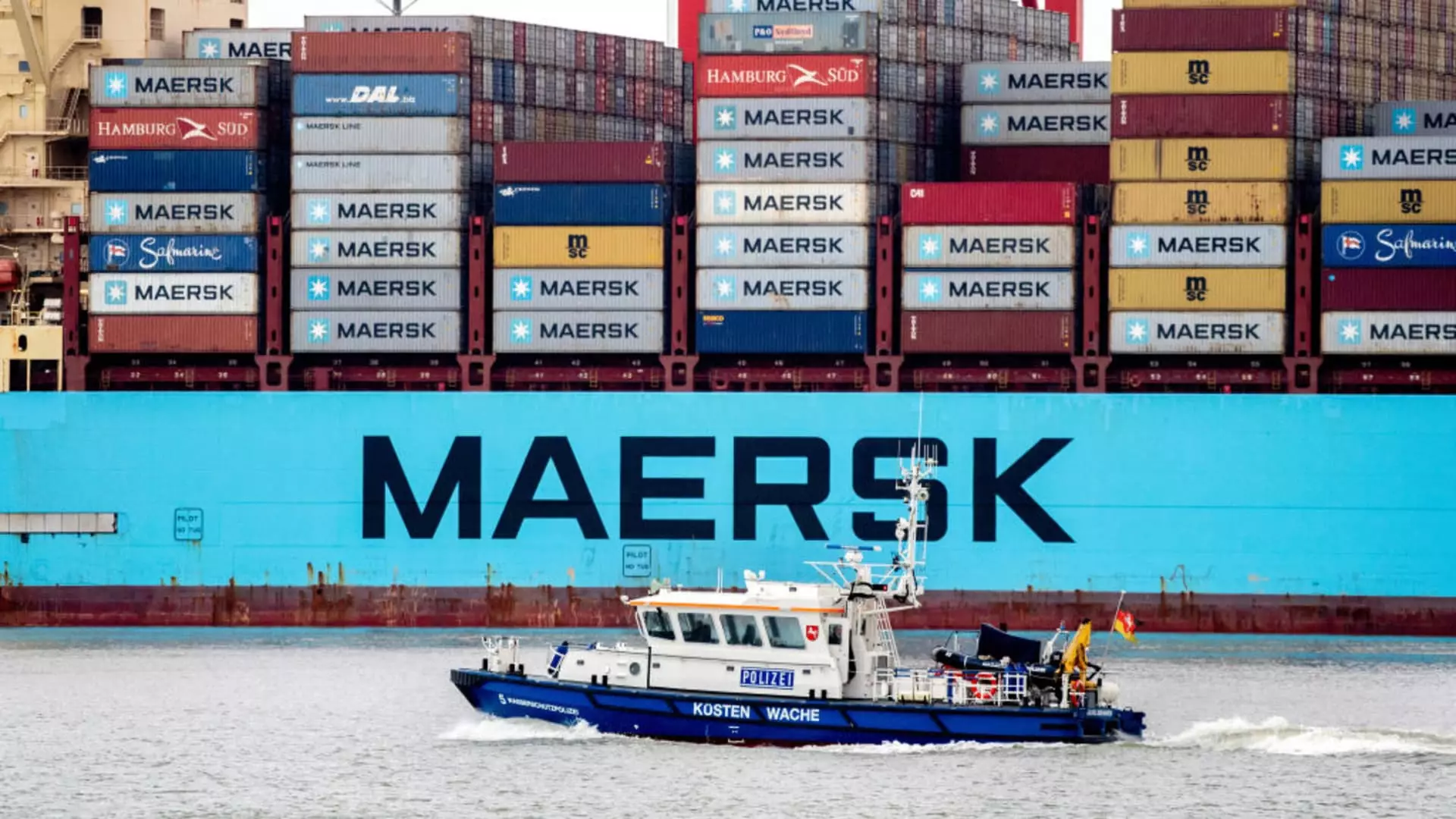In a response to increasing attacks by Houthi militants from Yemen, Danish shipping giant Maersk has confirmed that its vessels will take the Cape of Good Hope route around the south of Africa. This decision comes after a temporary pause on all travel through the Red Sea and Gulf of Aden, which was also implemented by other firms such as Germany’s Hapag-Lloyd. With the Red Sea serving as a vital link between Asia and Europe via the Suez Canal, the implications of this diversion are significant for global container trade.
The attacks on commercial vessels in the Red Sea have raised concerns over the safety and security of seafarers. These incidents, which involved projectiles being fired at ships, have prompted shipping companies like Maersk to prioritize the well-being of their crew. By diverting their vessels through the Cape of Good Hope, they aim to minimize the risks associated with traveling through the Gulf of Aden and Red Sea.
Impact on Global Trade
The Red Sea and Gulf of Aden are crucial maritime routes for global container trade, facilitating approximately 30% of all shipments. With Maersk’s decision to divert its vessels, it is expected that other shipping companies will follow suit. This shift in trade routes will undoubtedly lead to longer transit times and reduced capacity, as the Cape of Good Hope route takes 25% longer compared to the traditional journey through the Suez Canal.
As a result, market-watchers anticipate that global supply chains may face pressure, potentially leading to an increase in freight rates. The additional time required for ships to reach their destinations will temporarily reduce the capacity available in the market. However, the shipping industry is currently grappling with oversupply due to the impact of the pandemic, which may help mitigate the overall disruption to supply chains.
Response from Other Companies
While Maersk and Hapag-Lloyd have opted for the Cape of Good Hope route, other companies, like oil major BP, have only announced a pause on Red Sea travel without specifying any changes in their routes. It remains to be seen how various industry players will adapt to the evolving security situation. Each company will need to assess the risks and make decisions based on their unique circumstances and priorities.
The international community is also responding to the security challenges in the Red Sea region. U.S. Defense Secretary Lloyd Austin recently announced the formation of an international taskforce, comprising countries such as the United Kingdom, Canada, France, Italy, and Spain, to jointly address these challenges. While the specifics of the taskforce’s commitments are not yet known, the involvement of multiple nations underscores the seriousness of the situation.
In addition to the taskforce, the United States has provided support by intercepting Houthi drones targeting commercial ships. Other countries, like the United Kingdom and Italy, have also pledged to contribute their naval assets to help protect the route. This collaboration between nations signifies a collective effort to enhance maritime security and safeguard trade in the region.
Maersk’s decision to divert its vessels due to the attacks by Houthi militants highlights the growing security risks in the Red Sea and Gulf of Aden. The implications of this shift in trade routes reach beyond individual shipping companies, affecting global supply chains and potentially driving up freight rates. While the industry may already be facing oversupply challenges, the disruption caused by longer transit times cannot be ignored.
The formation of an international taskforce and the deployment of naval assets reflect the commitment of nations to address the security challenges in the region. Nonetheless, it remains uncertain when the affected shipping routes will be deemed safe for commercial vessels to resume their normal operations. As the situation continues to evolve, shipping companies and the broader maritime industry must remain vigilant and adaptable to navigate these challenging times.

Leave a Reply